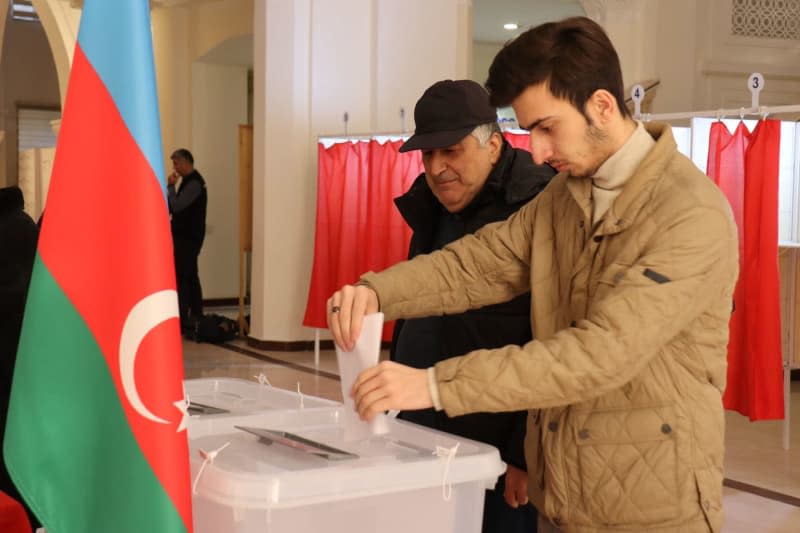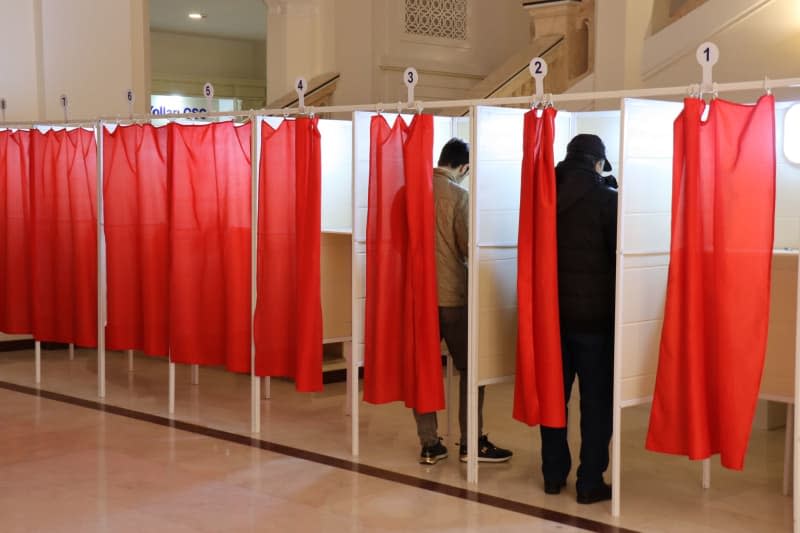Azerbaijan's hardline ruler poised to win snap presidential election

- Oops!Something went wrong.Please try again later.
Voting is under way in Azerbaijan's elections, where more than 6 million eligible voters can cast their ballots on Wednesday.
Some 6,500 polling stations opened at 8 am and are due to close at 7 pm (0400-1500 GMT) for the early presidential election in the authoritarian, oil-rich nation.
The vote is overshadowed by criticism and repression as international observers say the vote is neither free nor fair.
It is considered certain that the 62-year-old ruler Ilham Aliyev, who took over the office from his father over two decades ago, will once again be declared the winner.
The Office for Democratic Institutions and Human Rights (ODIHR), for example, points out that all six candidates on the ballot alongside Aliyev have publicly supported the president in the past.
In addition, many journalists who are critical of the regime have been arrested in recent months, according to the office, which falls under the Organization for Security and Co-operation in Europe (OSCE).
In the centre of the capital Baku, sometimes long queues formed in front of the polling stations. There were reports that public sector employees were pressured to head to the polls to ensure a high voter turnout.
Residents in the city have said that they see no point in casting their vote.
Aliyev's official reason for bringing forward the election, which was originally planned for 2025, is that the territorial integrity of Azerbaijan has now been restored following the conquest in the autumn of the contested region of Nagorno-Karabakh.
However, Marcel Röthig, who heads the South Caucasus office of the Friedrich Ebert Foundation, a German left-of-centre think tank, believes that the president now needs new legitimization of his rule.
Aliyev took over the presidency from his father Heydar in 2003 and has since been re-elected several times.
"This family's rule cannot be set in stone forever," Röthig told dpa. "Beyond the glittering facades of Baku, there are also signs of a certain fragility."
Röthig's assessment is that the regime wants to create new legitimacy now because "they know that the economic and social situation may be more uncertain and difficult in a year or two."
The president has been claiming credit for the seizure of Nagorno-Karabakh after decades of fighting between Azerbaijanis and Armenians over the region.
It is located on Azerbaijani territory but was mainly inhabited by ethnic Armenians. The leadership of the self-proclaimed Republic of Artsakh in Nagorno-Karabakh surrendered in September, and the majority of the more than 100,000 Armenian Karabakh inhabitants fled.
From Azerbaijan's point of view, the situation around Karabakh is now largely "resolved," Röthig explained, but he emphasized that "there is a danger that people will start thinking about other political challenges if this external enemy image of Armenia disappears."
Compared to other South Caucasus states, Azerbaijan - which lies on the Caspian Sea and is heavily dependent on oil and gas exports - has high social inequality, high inflation and low economic growth.


